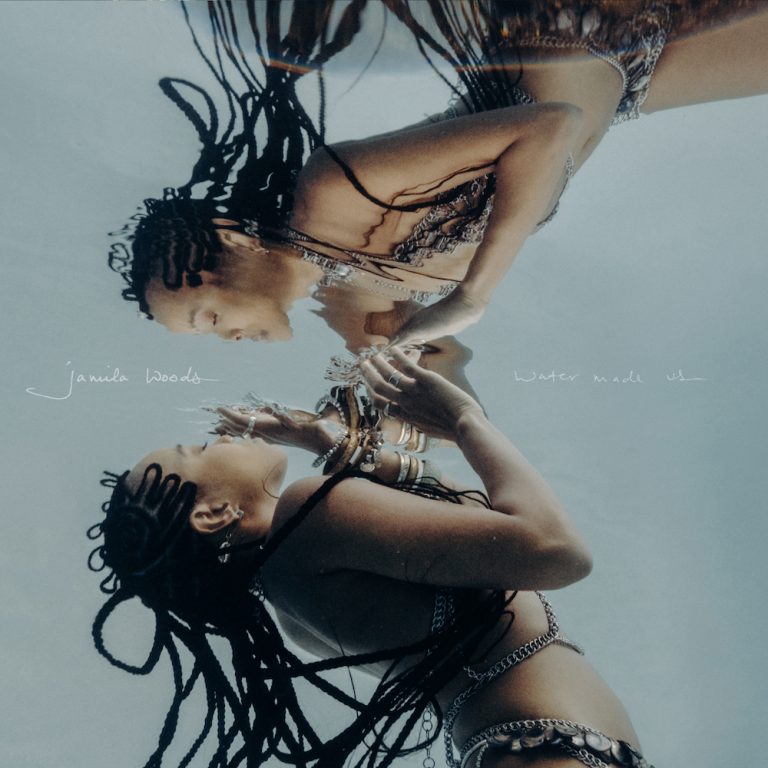In one of the more-recently posted interviews on YouTube that feature her, Jamila Woods sits in front of a Chicago Public Library audience and tees up questions for author/filmmaker Fatimah Asghar. She tells an anecdote about how she and Asghar bonded in pursuit of spoken-word performances, before wanting to learn more about contemporary use of nature in imagery. Because of course she would.
After releasing LEGACY! LEGACY! in 2019, Woods inherited a mantle of matriarchal, Black consciousness. It’s difficult enough for African-American artists to shake the assumption that they speak for all African Americans, but by singing about Eartha Kitt, Miles Davis and Jean-Michel Basquiat, Woods practically willed herself into this role. Staying in Chicago – Mahalia, Gwendolyn, Mavis, Oprah, um, Lori – made Woods’ quest incredibly straightforward. An endorsement from Michelle Obama was mere formality.
The combined climates of police killings, pandemic and #MeToo called out for calm and focus, and LEGACY! was there to provide. It also created an artistic prison of its own. Once you end up with a role as a generational spokesperson, how do you put down the mic? As soon as the media typecast her, Woods had to form an exit strategy. And, so, on Water Made Us, we find Woods using feminism to explore romance.
Possibly the most intelligent album about love this decade, Water Made Us gently and disarmingly humanizes Woods while maintaining a me-positive stance. Allergic to stereotypes, her romantic foils never devolve into a composite lover. Within the same week that Megan Thee Stallion called on women to “Out Alpha The Alpha”, Woods argues that the thumbsuckers are limitlessly vulnerable partners and invaluable sources of reflection. She’s positive about men or, at least, sees things in men that can be worked with. She’s still wary, however: “Don’t raise your voice with me”, she pleads on “Send A Dove”, “I’ll flinch like it’s a fist”. On the interlude “let the cards fall” she confesses “I want to know how to trust myself to know when to stay in a relationship… or let it go when it’s not safe”.
Mostly, Water Made Us celebrates flaws and the ability to work through them in stark contrast to the “I’m fucked up / you’re fucked up” vein of Top 40 or the meme-able adulting spun by the likes of Taylor Swift. Opener “Bugs” recommends opening windows and let come what may, while the spoken “I Miss All My Exes” unspools a thread of idiosyncratic boyfriends “who bring homemade salads to my grandma’s house / who don’t believe what I say about the stars, but listen anyway”. While the album’s overall theme was inspired by a Toni Morrison lecture and the lyrics contain some highly personal thoughts and feelings, Woods isn’t afraid to show a side of her that’s just a delirious girl in love. “Practice” is so bubblegum that its chief reference is, of all things, “Centerfield” by John Fogerty.
Musically, Woods and her producers stay in the background. “Bugs” opens the album with a phasered nod to Pekka Pohjola’s “Madness Subsides” – more commonly recognised as DJ Shadow’s “Midnight In A Perfect World” – a choice that lays out the album’s direction. The hands of a clock are perfectly symmetrical at midnight, but it’s always dark when the new day begins. “You smoke a lot of weed / like, a lot / You said you’re ‘feeling’ me / like, a lot”, Woods watches, protecting herself. Despite the Chance The Rapper-era beat on “Send A Dove”, the score tends to follow a chronological arc. The first quarter of the album draws on late-70s and early-80s R&B, transforming into neo-soul, then surprisingly the Phoenix/Steve Lacy double punch of “Boomerang” and “Still” before closing on the mental-health slow jams “Good News” and “Headfirst”.
Back at the library, Woods and Asghar rhapsodize about the nature of relationships and how they are defined who we are at the time we are in them. Water Made Us says that Woods’ relationships made her LEGACY! and that was then – it was never how she was always going to be. It will, though, always be who she was. “I never left any one of them”, she says of her exes, “not really. I just went somewhere… new”.


